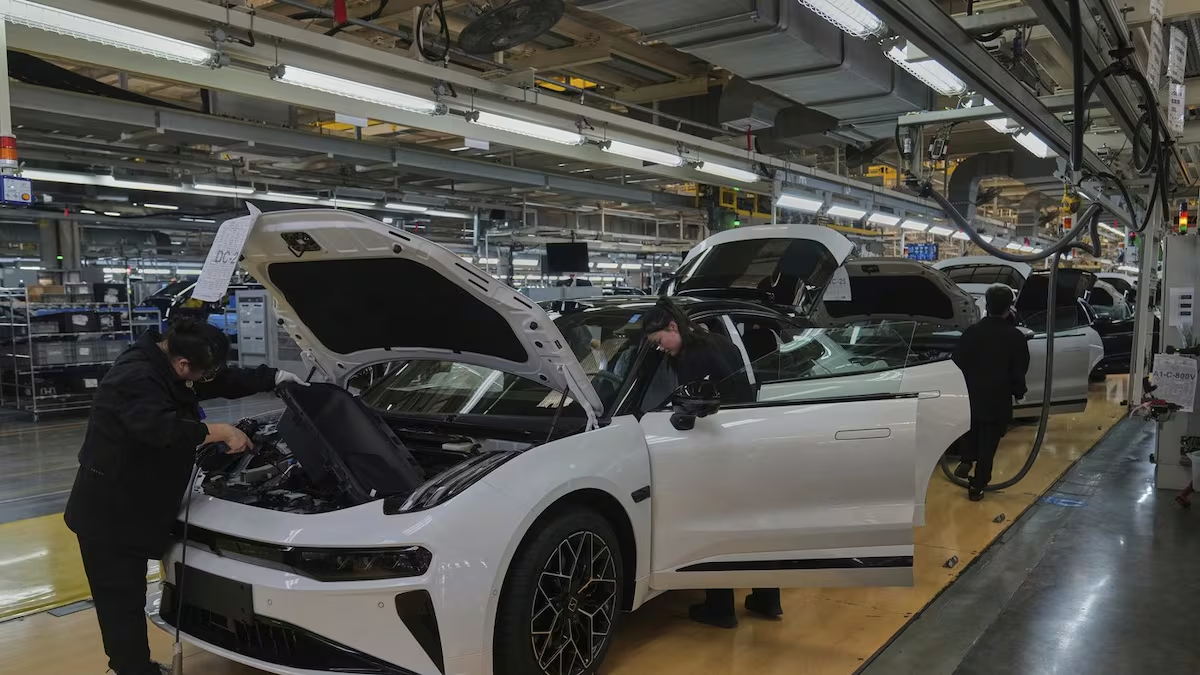OTTAWA – Former Canadian diplomat Michael Kovrig has issued a strong warning to the federal government, cautioning that removing tariffs on Chinese electric vehicles (EVs) would be a grave mistake with long-term consequences for Canada’s sovereignty, economy, and domestic industry.
In an interview with CTV’s Power Play with Vassy Kapelos, Kovrig, who spent more than 1,000 days imprisoned in China before his release four years ago, said that Canada’s current 100 per cent tariff on Chinese EVs must remain in place to prevent Beijing from gaining outsized leverage. He argued that if Canada were to drop the tariff, not only would the agriculture sector become more vulnerable to China’s political pressure, but the country’s EV and automotive supply chains could be hollowed out.
Kovrig explained that the agricultural sector, already strained by China’s retaliatory taxes on Canadian canola, could become increasingly dependent on exports to China, creating an environment where Canadian farmers and industry groups would be forced to lobby Ottawa to protect the relationship at all costs. This, he warned, would erode Canada’s policy flexibility and leave the country exposed to repeated economic punishment if disputes arose. On the industrial side, Kovrig cautioned that an influx of Chinese EVs could cripple Canada’s efforts to build its own electric vehicle sector, undermining years of investment and leaving supply chains at the mercy of foreign control.
“You risk giving up sovereignty and giving away too much leverage to China if you do those things,” said Kovrig, now a senior advisor with the International Crisis Group. “And in the case of electric vehicles, you risk completely hollowing out the entire supply chain, technological and industrial base of automotive.”
His remarks come at a delicate moment in Canada-China relations. Prime Minister Mark Carney met Chinese Premier Li Qiang this week on the sidelines of the United Nations General Assembly in New York, signalling interest in deepening cooperation in select areas such as agriculture and climate. Carney also suggested he expects to meet Chinese President Xi Jinping “at the appropriate time.” Yet Kovrig cautioned against placing too much weight on such gestures, noting that diplomatic smiles and handshakes are part of every UN gathering and do not necessarily signal a genuine reset. “Canada must not be naïve,” he said, adding that China has consistently demonstrated it is not a good-faith partner.
The debate over tariffs coincides with a shift in Canada’s own EV policy. Earlier this month, Prime Minister Carney announced his government would pause its 2026 target requiring 20 per cent of light-duty vehicle sales to be zero-emission, while launching a broader review of the mandate. Kovrig argued that relaxing protective measures at such a critical juncture could put Canada’s auto industry at risk and compromise the country’s economic independence.
Kovrig’s message was clear: while Canada must engage with China as a global power, it must do so carefully, without sacrificing sovereignty or exposing its farmers and auto workers to future political and economic coercion.

